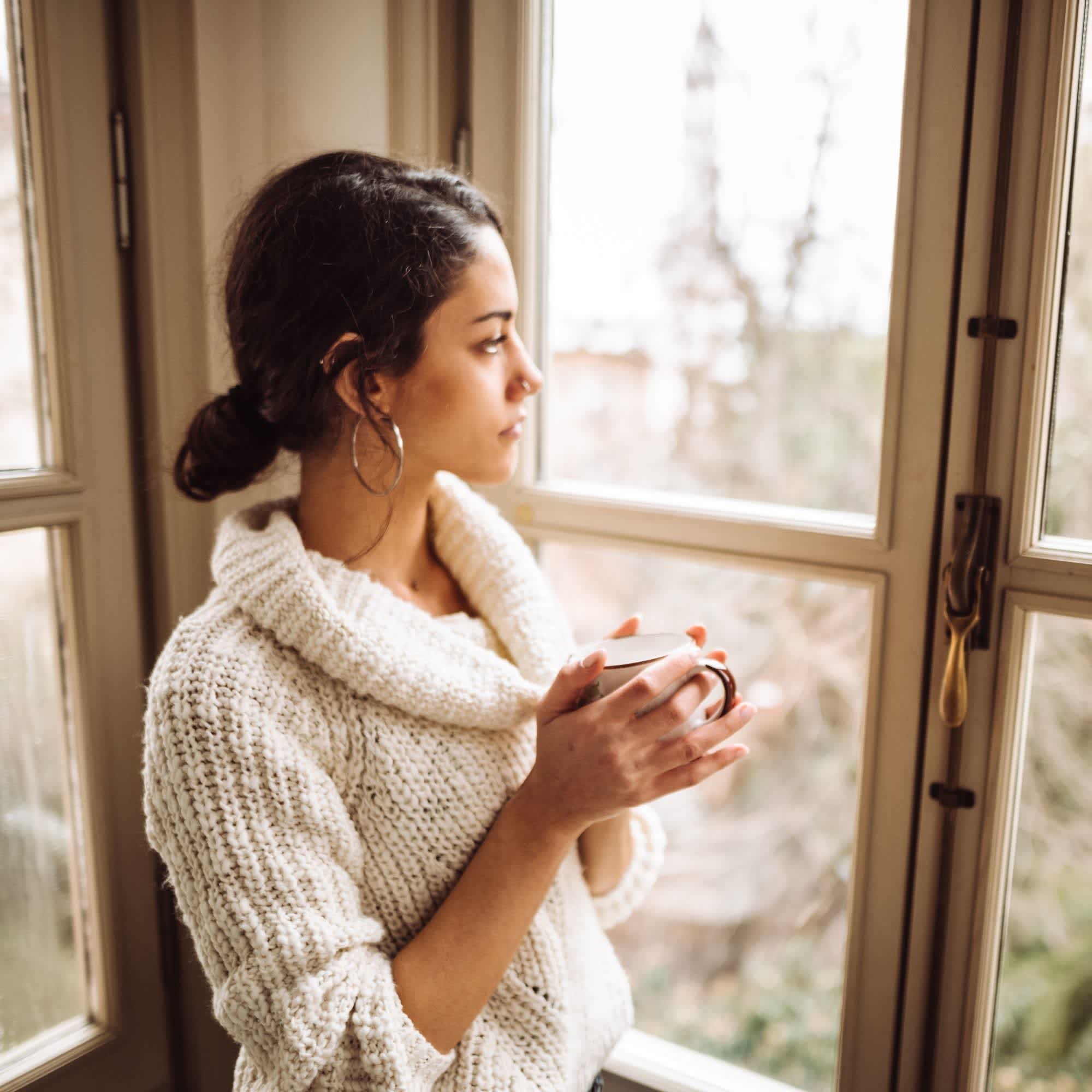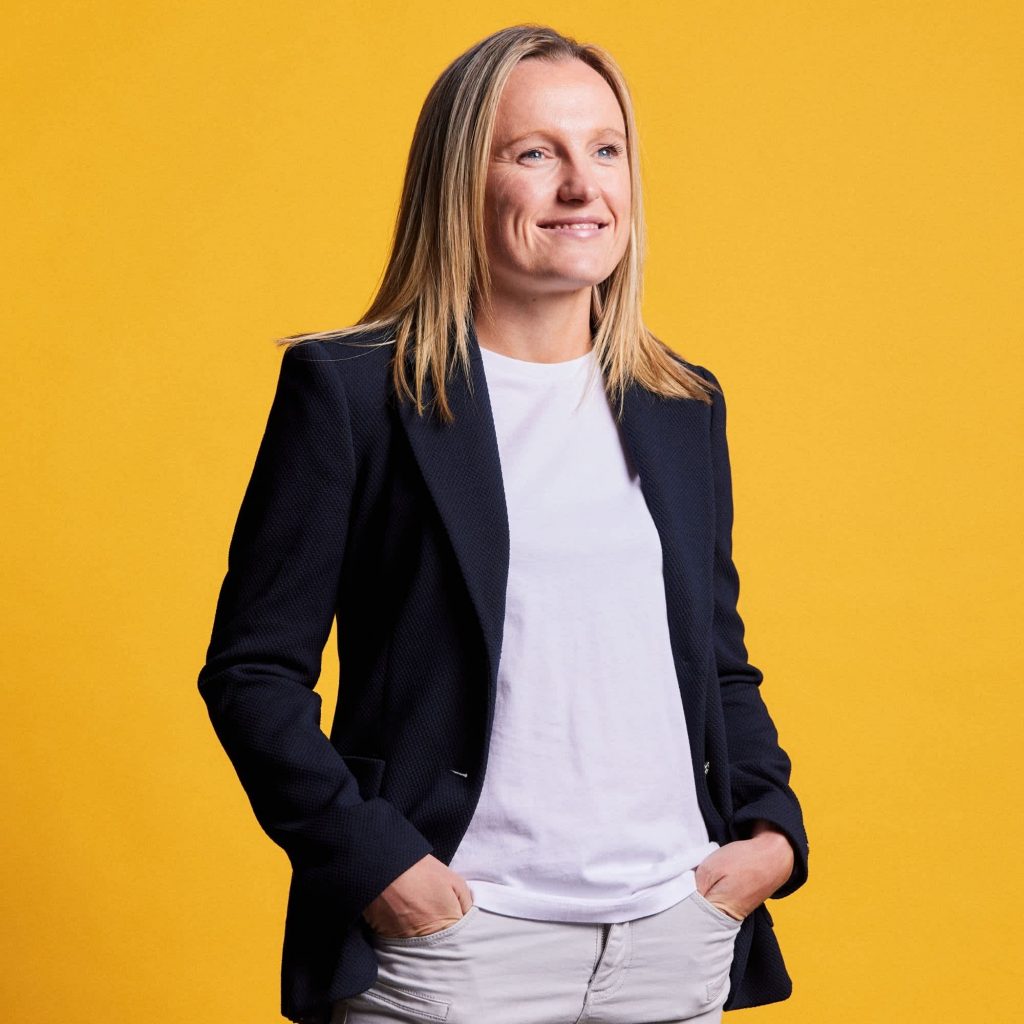
- POPSUGAR Australia
- Fitness
- A Psychologist’s Tips For Managing Self-Quarantine in a Share House
A Psychologist’s Tips For Managing Self-Quarantine in a Share House

I recently had the unpleasant experience of contracting the now not-so-novel Coronavirus. Like for many millennials living in sharehouse accommodation or with their parents to save money, catching COVID meant I was confined to my room.
My COVID hit the sweet spot between “pretty bloody bad” and “not so unwell I’m unaware of what’s happening around me.” While I’m grateful not to have been sicker (thank you to Priceline for that third booster), spending a week in my room, alone with my thoughts, was challenging. Thoughts that frequently popped into my head were: “when will I feel better?”, “Will I EVER feel better?”, “My inbox is going to be totally out of control”, accompanied by constructive activities like obsessively Googling the likelihood of getting long-COVID.
I felt more depressed and anxious during my isolation than I had in a long time, and these feelings lingered after I left quarantine.
With the number of people who are currently isolating in shared accommodation high, and the likelihood we will all contract COVID (for a first, second or third time) even higher, I thought talking to a psychologist about dealing with iso-anxiety in 2022 might be helpful.
Mary Spillane is a clinical psychologist who works with Cricket Australia and The Headspace App. I spoke to her about who copes best in isolation, as well as the strategies people struggling can use to come out the other end with their mental health (and household relationships) intact.

Who Copes Best with COVID Isolation?
Having COVID and needing to isolate are unpleasant and disruptive events for everyone. But why do some people cope so much better than others?
“I find the people who struggle with the isolation are not psychologically flexible. People who are rigid in their thinking struggle to cope with change and changes to routine,” Spillane says.
The people who cope better with isolation? “Someone who can think, ‘I wish this weren’t happening, but how can I get through this week?’ will cope much better. Being able to shift your mindset to help you adapt to a situation is important.”
How Do You Practice Psychological Flexibility During Isolation?
Firstly, how do you know you’re being psychologically inflexible? When dealing with something most people find very distressing, it can be hard to tell. Spillane says, “If you find yourself thinking things like ‘I’m not coping, I can’t do this, I wish this weren’t me’ that is a warning sign.”
To increase your psychological flexibility, it’s important to first accept your emotions before moving on to strategy. Spillane says, “Where possible, try to accept that it is the way it is. Daily mindfulness is beneficial here – using the Headspace app will help you accept and tolerate negative emotions, and reduce their intensity.”
Making an effort to stay in touch with people outside your bedroom can make a difference, even if you’re feeling very unwell (or too miserable to interact) is also critical. “Even though you can’t see people, schedule phone calls or face time, event texting is great to ensure you still feel connected,” says Spillane.
How Can You Plan Ahead?
If we know we will all contract or re-contract COVID, what can we do ahead of time?
“From a psychological perspective incorporating mindfulness will increase your emotional flexibility over time,” Spillane says. “It will enable you to focus your attention where you want it, rather than getting caught in negative thoughts. Psychological flexibility is a great asset that increases your resilience in all areas of life.” Considering logistics can also reduce stress, whether that’s deciding ahead of time how you will get groceries or exercise. Spillane says, “There is no substitute for going for a run outdoors, but think about the space you will have and how you can exert some energy in it if you find yourself needing movement.”
What About Relationships With Others in Shared Accommodation?
COVID isn’t just stressful for the person who catches it. It’s disruptive and worrying to a household, whether it’s your family home or a sharehouse. Spillane says that the best way to maintain positive relationships during this period and come through with stronger connections is to steer clear of blame (even though you might wish your housemate hadn’t gone to that music festival).
“If you find yourself blaming someone, it’s worthwhile winding that thinking back. It won’t serve you, and it can harm the relationship. Nobody wants COVID, and it’s normal to be afraid of it or frustrated by the disruption it causes, but try to normalise it and reassure the person that it’s okay. Think, ‘what can we do to support each other and get through this?’ and relationships will be enhanced.”
Ultimately, Spillane says, focusing on other people’s behaviours is not only harmful, but it’s also illogical. “Thinking ‘Well, they went to a nightclub’ when you could just as easily catch COVID at the supermarket won’t help you. We need to accept that COVID is a part of life and work on managing it.”
What If You’ve Finished Isolation, But Are Still Feeling Depressed and Anxious?
There has been a lot of media coverage about the connection between lockdowns, COVID and PTSD. There is no disputing the mental health impacts of covid and the lockdowns, and some people will need professional help to process their experiences. However, if you’re still feeling anxious and depressed after an isolation period or a lockdown, you may not be suffering from post-traumatic stress disorder.
Spillane says that amongst the mental health community, “We have seen more of short-term adjustment issues rather than true PTSD. A few months after the Melbourne lockdown, people needed to adjust and reintegrate into everyday life. And I am still seeing a few signs of that in my clinical practice, but I would call them adjustment issues rather than traumatic episodes.”
Our brain adjusts very quickly to specific sets of circumstances – so if you find yourself cooped up and very restricted in your movement, your brain will quickly try to adapt to that. Then, when you find yourself stepping out into the world however many days or weeks later, another adjustment is required, provoking anxiety. It is important not to panic and think, ‘I’m not coping. I shouldn’t feel this way.’ Normalise those feelings as emotions connected to a reintegration process, and you’ll manage a lot better.”
Of course, some individuals will require psychological intervention.
Spillane says, “If people notice they are experiencing anxiety, nightmares, and flashbacks for longer than two weeks, they should seek help. But there is a distinction between that and a negative memory. If you are thinking back from time to time and feeling upset about what happened, you can think, ‘right now I’m okay, I’m safe, and I’m able to live my life the way I want to’ you can recentre and focus on what’s happening right now, which is the best strategy. “


